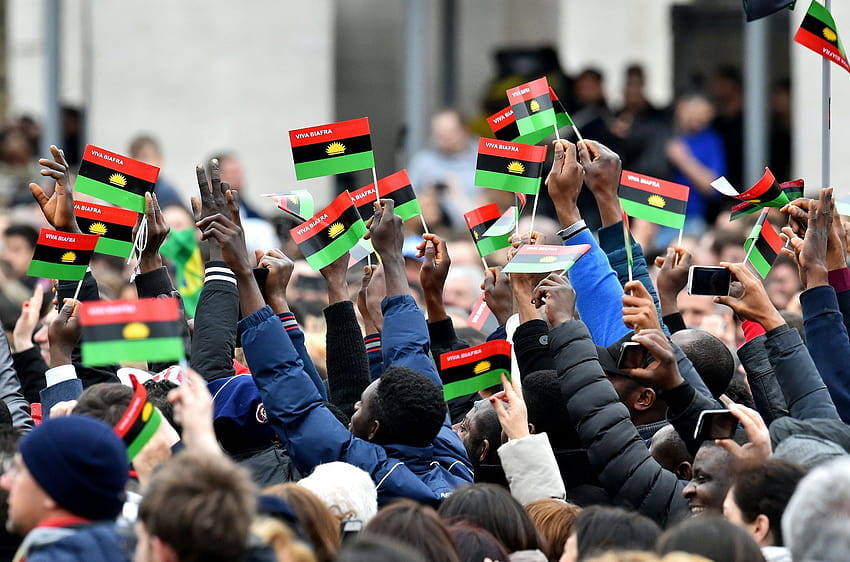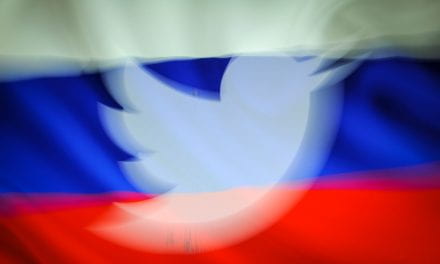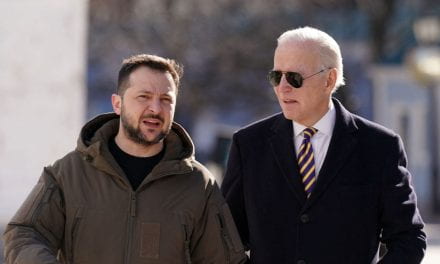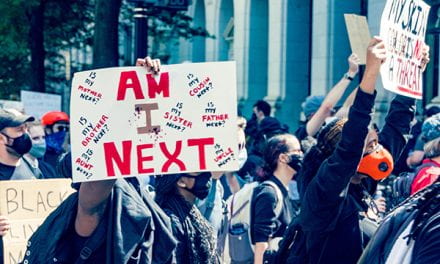Anyone following the 2023 Nigerian presidential election closely would guess that the coverage and mobilization around the underdog candidate, Peter Obi, signified a turning point in Nigerian politics. But the election has come and gone, and with his loss, it appears that those who expected change are more dissatisfied than ever before. [1] Obi’s presidential platform promised transparent policymaking, and the opportunity to unite the country around a candidate who would pursue a more equitable future for all Nigerians. Sixty-three years since independence, this promise is overdue, as the country has had to grapple with acute ethnic tensions, abrupt transitions from military rule to civilian government, and the objective reality that a country filled with so much potential continues to regress. Many citizens who supported Obi’s campaign knew that victory was unlikely but were content with flirting with and being invigorated by the campaign’s promise of hope. For another segment of the population, however, the outcome of the election could signify a breaking point.
The victor (and now president-elect), Asiwaju Bola Ahmed Tinubu (widely known as Bola Tinubu or Tinubu) is a well-established politician who was previously the governor of the country’s most metropolitan city, Lagos. In many ways, President-elect Tinubu reflects the aspects of the Nigerian political system that many citizens find unsavory and regressive. Some have claimed that he is the personification of corruption, [2] as he is commonly referred to colloquially as “Jagaban”, meaning “boss of bosses”. [3] Although this term has also been used by his detractors and opponents derisively, it is an apt description of his reputation as a political boss and kingmaker. Incidentally, the slogan for his campaign was the unabashed “It’s my turn”. [4] In many ways, his choice of slogan is a callback to the atmosphere of old-guard leadership that is endemic to the Nigerian political system. It is widely understood that Tinubu is a vital ally to rely on if one has political ambitions in Nigeria. On several occasions, Tinubu himself has boasted that he played a key role in the election of the exiting president, Muhammad Buhari. If Tinubu is a political boss, this begs the question of whether Nigerian politics functions like a political machine.
Control of the highest political position in the country oscillates between two parties- the People’s Democratic Party (PDP) and the All Progressives Congress (APC), [5] which is the party of Tinubu (and the exiting president, Muhammad Buhari). The challenger, Peter Obi was a hopeful on the PDP presidential ticket until he defected to the previously obscure Labour Party when another hopeful, Atiku Abubakar, broke protocol and strongarmed his way into being the party’s frontrunner. According to tradition, PDP adheres to an unwritten practice of alternating the regional affiliation of the party’s presidential frontrunner. [6] As an Igbo/ native of the Southeastern part of the country, not unlike Tinubu – it was Peter Obi’s turn to vie for the presidency. This slight is one of the many reasons why this recent election is a flashpoint in Nigerian politics and the exigency of nation-building in the country. Many Igbos lament that they are a tribe without a country, as it appears that they have been excluded from the political process and are systematically marginalized. [7] The election of Peter Obi would have represented a turning point, pacifying their suspicion that political and social inclusion is a far cry from the Igbo experience in Nigeria since the civil war of 1967.
Shortly after Nigeria achieved independence from the British in 1960, the Igbos were targets of pogroms and the government did little to reassure the Igbos that their security would be prioritized. As a result, the Igbos, mobilized under the nation of Biafra and the leadership of General Chukwuemeka Ojukwu, declared their independence. During the conflict, Biafra bore the lion’s share of the casualties with some reports indicating that hundreds of thousands were killed and up to 6000 people died of starvation every day, [8] not to mention the millions that were displaced. [9] Additionally, many of the Igbos who resided in the northern portion of the country lost their possessions by virtue of their tribal affiliation, [10] regardless of their actual involvement in the Biafran struggle. It has been roughly half a century since the conflict, and very little has been done to compensate the Igbos for their material losses, [11] acknowledge the alleged war crimes that were committed against them, or meaningfully involve them in the nation-building process. [12] The outcome of the most recent presidential election could be the straw that breaks the camel’s back, so to speak. Many Igbos were inspired by Peter Obi’s charismatic platform and were emotionally invested in his campaign out of optimism that this could be an opportunity of reconciling the past (and current) transgressions of the Nigerian government against them.
Today, transgressions against the Igbos continue to be commonplace. These range from ethnic violence in the North and occasionally in the South to blatant exclusion from the expected power-sharing political framework. Leading up to (and during) the 1967 civil war, the Igbos were terrorized, killed, and displaced. [13] The fact that the Nigerian government and the Biafrans had divergent interpretations of the reasons for the war emphasizes the disconnect between the two parties. For the former, the war was a “war for national unity,” whereas for the Biafrans, it was necessitated by their desire for self-determination. [14] As the war progressed and the Biafrans suffered immense casualties, the war was ultimately internalized as a struggle for Igbo survival. With the rise of Boko Haram and the Nigerian government’s inability to maintain its monopoly on violence and curb the insurgency it is apparent that not much has changed regarding the Igbo/ Biafran vulnerability. This failure reverberates the deep-seethed suspicion among many Igbos that the Nigerian government is not interested in involving them in the process of nation-building (or reconciliation); in fact, for some, this reflects the government’s intent to exterminate them. [15]
As a countermeasure to the government’s lack of urgency to ensure the security and empowerment of the Igbos as it pertains to Boko Haram and political inclusion, militant arms of the Biafran struggle have re-emerged. Most notable among these groups is the Biafra separatist group, Indigenous People of Biafra (IPOB), spearheaded by Nnamdi Kanu. [16] The main catalyst to Kanu’s rise has been his ability to tap into the disillusionment that many Igbos in the Southeast feel about their systemic marginalization and political exclusion, despite being the country’s third-largest ethnic group. [17] This asymmetric power situation continues to be a major point of contention for many Igbos in Nigeria – a country of 250 ethnic groups and 500 languages. [18] Not unlike Peter Obi, Kanu points to the issues of security, civil unrest, and ethnic disharmony as regressive and untenable; but unlike Obi, Kanu insists that secession and Biafran independence are the only remedies for the Igbos. He believes that the Igbos will be perpetually marginalized due to the configuration of the state since its conception. Mr. Kanu has been imprisoned since 2021 without access to due process after years on the run following raids on his home and attempts at his life, as the Nigerian government cites that his rhetoric incites violence. [19] Some consideration of the configuration of Nigeria’s political system would reveal that there is some merit to the grievances of Kanu and his proponents.
The Southeast region of Nigeria, the historical homeland of the Igbos, is designated only five states within the country’s federalism structure [20] which dwarfs the allocations afforded to the other regions in the country. [21] To compound this, despite their inherent structural power advantage, the Northern elites don’t care to mask their intention of monopolizing power. Since the tenure of the country’s inaugural president, Nnamdi Azikiwe, the Igbos (and other Southeasterners) have not been given an equitable opportunity to control the highest political office in the land. Even the 2011 presidency of the non-Igbo Southeasterner, Goodluck Jonathan, corroborates Igbo suspicions about the lack of power-sharing. Moreover, some considered his election to be a fluke as his party (PDP, also the former party of Peter Obi) was again hesitant to adhere to the implicit tradition of rotating presidential candidates between the North and South. [22] The party’s elites finally conceded when Jonathan promised to only be a one-term president. [23] This breach in tradition was repeated during the 2015 and 2023 presidential election cycles. So, the apprehension by many Igbos that tribalism is entrenched in the Nigerian political system is not unjustified.
Unlike Nnamdi Kanu, Obi is an optimistic moderate who is willing to build cross-ethnic, cross-regional, and cross-religious coalitions due to his belief that the Nigerian experiment can work. President-elect Tinubu [24] and Obi [25] selected a Muslim running mate for their respective tickets, but Obi’s choice adhered to tradition, revealing his commitment to unity. Due to the imperative for power sharing because of the country’s diverse makeup, the expectation was that Tinubu, a Muslim from the Southwest (with a strong base of support in the North) would select a Christian running mate for his ticket. [26] The rationale for pairing Christians and Muslims on party tickets is that it would foster cross-religious and regional solidarity and give the lead candidate the best chance of capturing a plurality of votes in the election. Despite his noble aim of being a president for all, Obi came in third place behind Tinubu and his former PDP co-partisan and double-crosser, Atiku Abubakar. He captured only 20 percent of the votes (6.1 million) in comparison to Tinubu’s 40 percent (8.8 million). [27] Although Obi performed poorly in the country’s Northern region, he successfully mobilized support among the youth, primarily in the South, [28] and surprisingly, he secured a victory in Lagos- the state where Tinubu was previously a governor. [29]
Despite Obi’s unwillingness to classify himself as an Igbo candidate, it was apparent that many Igbos/ Biafra sympathizers saw him as their candidate. Incidentally, he was supported by the Biafran revolutionary Ojukwu in his 2003 bid for governor of Anambra state, [30] and in his recent attempt at the presidency, Chimamanda Ngozi Adichie – the prolific Nigerian author, publicly championed his cause. [31] For many Igbos, the election of Obi would have been an opportunity to reconsider their appraisal that the Nigerian experiment had failed for them specifically and that their only chance for redress exists in the re-emerging Biafran movement. With his defeat in an election shrouded with rumors of vote rigging [32] and incidents of ethnic violence, [33] not only have their suspicions been confirmed but there is reason to believe that the outcome of the election represents another missed opportunity for nation-building. If this opportunity had been seized, it had the potential to be both transfiguring and progressive for the country.
Besides the Igbos, Obi captured the attention of the youth of Nigeria desperate for change and progress. Unlike Tinubu, who organized his campaign around his entitlement to rule next, Obi’s platform promised pragmatic solutions for the country’s most pressing problems, including chronic unemployment, breaking the cycle of corruption and patronage, and addressing the country’s energy concerns. On the campaign trail, Obi articulated the vision of his campaign and the gravitas of the moment, saying, “What drives every country is hope”. [34] This sentiment mirrors the central message of hope during Barack Obama’s watershed 2008 U.S. presidential campaign. Similarly, Obi’s loss marks a watershed moment in Nigerian politics. In Nigeria, the sense is that many hopeful citizens who anticipated change are disappointed but not surprised at the outcome of the election. The country has a history of a lack of transparency around elections. This attitude of resignation is even more poignant when one considers that only a small fraction of eligible voters participated in the 2023 election [35] due to their conviction that carrying out their civic duty is unlikely to yield meaningful change in the country. Moving forward, the expectation is that even fewer people (especially among the Igbos) will see the value in going to the polls on election day.
Obi’s failure to capitalize on his momentum to capture the presidency is less a reflection of his poor campaign strategy and more of a confirmation of Nigeria’s chronic issues pertaining to rampant corruption and ethnic intransigence. In his address to the nation, now President-elect Tinubu, attempted to placate the concerns of agitated Nigerians by lamenting, “I hear you loud and clear.” [36] Unfortunately, using perfunctory rhetoric will not be able enough to solve the country’s security crises, assuage the concerns of many who see little opportunity for upward social and economic mobility, and most importantly, pacify the Igbos who fear that they are a tribe without a nation. Maybe the answer to the Igbo question is Biafra, not Nigeria.
References
[1] Maclean, R., & Peltier, E. (2023, March 1). “Nigeria’s most powerful kingmaker wins his long-desired throne.” The New York Times. https://www.nytimes.com/2023/03/01/world/africa/nigeria-president-election-tinubu.html.
[2] Maclean, R. (2023, February 28). “Bola Tinubu, a political ‘godfather’ in Nigeria, sought the presidency for years.” The New York Times. https://www.nytimes.com/2023/02/28/world/africa/nigeria-election-bola-tinubu.html.
[3] Maclean & Peltier, “Nigeria’s most powerful kingmaker wins his long-desired throne.”
[4] Ibid.
[5] Obadere, E. (2023, March 22). “Peter Obi and a dream deferred.” Center on Foreign Relations. https://www.cfr.org/blog/peter-obi-and-dream-deferred.
[6] Ibid.
[7] Aro, G. C., & Ani, K. J. (2017). “A historical review of Igbo nationalism in the Nigerian political space.” Journal of African Union Studies. 47-77. https://www.jstor.org/stable/26886164.
[8] Nossiter, A. (2012, November 1). “Remembering Biafra.” The New York Times. https://www.nytimes.com/2012/11/04/books/review/there-was-a-country-by-chinua-achebe.html.
[9] Jervis, S. (1967). “Nigeria and Biafra.” Africa Today. 16-18. https://www.jstor.org/stable/4184845.
[10] Ukiwo, U. (2009). “Violence, identity mobilization and the reimagining of Biafra.” Africa Development. https://www.jstor.org/stable/24484644.
[11] Ibid.
[12] Onuoha, G. (2016). “Shared histories, divided memories: Mediating and navigating the tensions in Nigeria-Biafra war discourses.” Africa Today. 3-21.
[13] Jervis, “Nigeria and Biafra.”
[14] Onuoha, “Shared histories, divided memories: Mediating and navigating the tensions in Nigeria-Biafra war discourses.”
[15] [18] Ukiwo, “Violence, identity mobilization and the reimagining of Biafra.”
[16] Maclean, R., & Ezeamalu, B. (2021, June 29). “Biafra separatist, after years on run, is held in Nigeria.” The New York Times. https://www.nytimes.com/2021/06/29/world/africa/nigeria-arrests-biafra-leader.html.
[17] Ibid.
[18] Nossiter, “Remembering Biafra.”
[19] Maclean & Ezeamalu, “Biafra separatist, after years on run, is held in Nigeria.”
[20] Aro & Ani, “A historical review of Igbo nationalism in the Nigerian political space.”
[21] Ezeibe, C. C., & Ikeanyibe, O. M. (2017). “Ethnic politics, hate speech, and access to political power in Nigeria.” Africa Today. 65-83. https://www.jstor.org/stable/10.2979/africatoday.63.4.04.
[22] Ibid.
[23 Ibid
[24] Maclean, “Bola Tinubu, a political ‘godfather’ in Nigeria, sought the presidency for years.”
[25] Maclean, R. (2023, March 1). “The surprise third-party candidate who electrified Nigeria’s youth and whose party is refusing to concede.” The New York Times. https://www.nytimes.com/2023/02/28/world/africa/peter-obi-nigeria-election.html.
[26] Maclean, “Bola Tinubu, a political ‘godfather’ in Nigeria, sought the presidency for years.”
[27] Maclean & Peltier, “Nigeria’s most powerful kingmaker wins his long-desired throne.”
[28] Obadere, “Peter Obi and a dream deferred.”
[29] Maclean, R., & Peltier, E. (2023, February 28). “Opposition parties in Nigeria call for election rerun, citing vote rigging.” The New York Times. https://www.nytimes.com/2023/02/28/world/africa/nigeria-election-challenges.html.
[30] Aro & Ani, “A historical review of Igbo nationalism in the Nigerian political space.”
[31] Maclean, “The surprise third-party candidate who electrified Nigeria’s youth and whose party is refusing to concede.”
[32] Peltier, E., & Oluwoyin, O. (2023, March 9). “Nigeria postpones state elections amid presidential vote controversy.” The New York Times. https://www.nytimes.com/2023/03/09/world/africa/nigeria-state-elections.html#:~:text=the%20main%20story-,Nigeria%20Postpones%20State%20Elections%20Amid%20Presidential%20Vote%20Controversy,the%20center%20of%20fraud%20accusations.
[33] Maclean & Peltier, “Opposition parties in Nigeria call for election rerun, citing vote rigging.”
[34] Maclean, “The surprise third-party candidate who electrified Nigeria’s youth and whose party is refusing to concede.”
[35] Peltier & Oluwoyin, Nigeria postpones state elections amid presidential vote controversy.”
[36] Maclean and Peltier, “Nigeria’s most powerful kingmaker wins his long-desired throne.”







